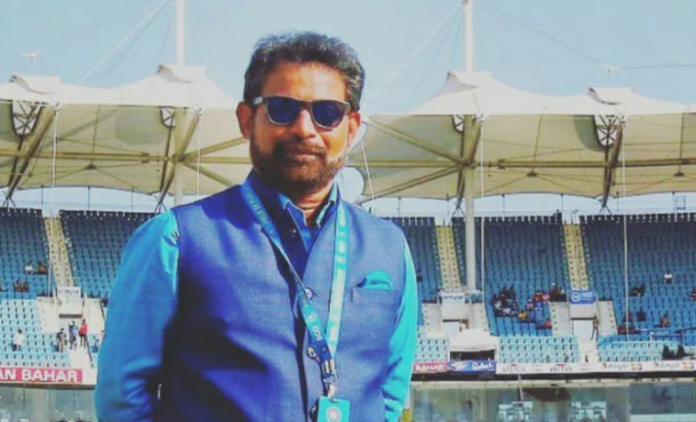Three days after his controversial television comments were broadcast to the public, Sharma submitted his resignation, and the BCCI accepted it, citing a breach of contract.
Approximately forty days remain until the conclusion of Chetan Sharma’s second term as chairman of the National Selection Committee. Three days after a TV sting showed him talking about India team players and selection issues, which has stirred up controversy, the former India player was forced to resign from his position as captain of the India team.
Sharma was present at the Eden Gardens on Thursday in his capacity as a chief selector for Day 1 of the Ranji Trophy final between Bengal and Saurashtra. This was several hours after the sting operation had been broadcast. On Friday, he was nowhere to be found at that location.
Jay Shah, who is the secretary of the BCCI, confirmed that Chetan Sharma’s resignation has been accepted.
After going through 600 applications, the BCCI’s Cricket Advisory Committee (CAC) finally decided on the five national selectors on January 7. Prior to that date, Sharma had not been reappointed to his position as chief selector. His panel was supposed to select India’s team for the One-Day International World Cup, which was scheduled to take place in their country between October and November. This would have helped India end its 10-year wait for an ICC trophy.
When he gave his opinion on a variety of cricket issues while oblivious to the hidden camera that was being used by Zee News, he had no idea that his position as chief selector was in jeopardy. He brought up Virat Kohli’s controversial removal as ODI captain in late 2021, described Rohit Sharma’s future in Twenty20 as being bleak, and claimed that Hardik Pandya and other players would come home for hours and that many India cricketers took injections to show that they were fully fit. He also claimed that Rohit Sharma’s future in Twenty20 was bleak.
The Board of Control for Cricket in India (BCCI) is responsible for conducting an investigation into how much of it was Sharma’s indiscretion and how much of it was true. According to what has been learned, the board has not yet requested that Zee provide the unedited tape of the sting operation.
According to a representative from the news channel, “there was no proposal of and exchange of money while we were conducting the sting operation.” According to reports, Sharma consented to discuss sensitive matters related to the selection. At one point, he instructs the person who is conducting the interview not to say that “Rohit was being favored over Virat,” but rather to say that former president Sourav Ganguly “did not like Virat.”
Sharma is also seen in the video providing an explanation for what he referred to as a “ego clash” between Ganguly and Kohli. According to him, Ganguly did ask Kohli to rethink his decision to step down as captain of the Twenty20 International team before the Twenty21 World Cup. The controversy was stoked when Kohli stated that the then-president of the BCCI had not asked him to reconsider his decision.
A significant portion of what was said was not shocking, but it cast a negative light on the selection committee, the team management, the players, and BCCI. It is clear that none of the people he mentioned wanted to continue their collaboration with him. A representative of the BCCI stated that it did not matter what was found in the sting operation because Sharma was in “breach of his contract” and his continued employment became “untenable.”
FORGETTABLE FIRST STINT
The month of December 2020 marked the beginning of Sharma’s tenure as chief selector. He did not speak to the media very often to provide an explanation for his selections. When he did so, it was to put an end to the crisis involving Kohli’s captaincy. India was victorious in a large number of bilateral white-ball series but was unsuccessful in both of their T20 World Cup appearances.
It was reported that he was fired after the team’s loss to England in the semi-final of the 2022 World Cup, but he was able to keep his job by arguing that the majority of strategic decisions regarding the lead-up to the tournament, such as rest and rotation, were made by the team management. Sharma was the only member of the previous group of selectors to make it through to the new one.
During his playing career, life presented Sharma with an opportunity to make amends and redeem himself. After being on the receiving end of Javed Miandad’s last-ball six in the 1986 Australasia Cup final in Sharjah, he went on to become a hat-trick hero against New Zealand in the 1987 World Cup. This turned him into a villain in the eyes of the public. If he had continued in his role as chief selector and India had been victorious in the World Cup later this year, the second term of his tenure would have been a glorious one.
A replacement was in the works.
The announcement of his replacement is anticipated to take place in due course. After the conclusion of the Indian Premier League (which runs from March 31 to May 28), there will be no more team selections made. The only exceptions to this rule are the teams that will play the third and fourth tests and three one-day internationals against Australia, as well as the Rest of India’s team that will compete in the Iran Cup. Among the four remaining selectors, Shiv Sundar Das is the one who has played the most Tests, so he will serve as the interim head of the selection committee.




